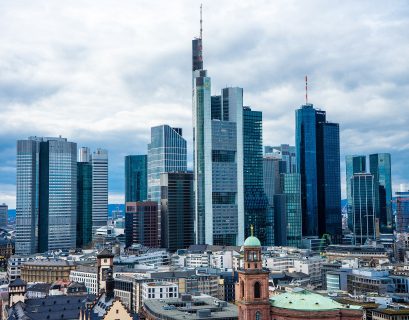Since the Brexit referendum in June 2016, many Britons are leaving the United Kingdom, emigrating to mainland Europe and applying for citizenship in an EU country. This is shown by figures from the European Statistics Office Eurostat and the Organisation for Economic Cooperation and Development (OECD).
British have the second-highest number of naturalisations in Germany
In Germany alone, between the 2016 referendum and the end of 2019, the number of Britons who received German citizenship increased by 2000 per cent. According to the Federal Statistical Office, a total of 3,295 British citizens were naturalised in Hessen during this period (as of 31 December 2019). Around 120,000 British citizens now live in the Federal Republic, 2,545 of them in the Financial Centre Frankfurt (as of 31 December 2019 / Hessian State Statistical Office). Experts estimate that about half of the British living in Germany will have German citizenship in addition to British citizenship by the end of the year, according to an article by WDR correspondent Ralph Sina.
Following these developments, the United Kingdom moved into second place after Turkey in terms of naturalisations in Germany. According to studies conducted by the Berlin-based Social Science Research Centre in cooperation with Oxford University, the UK’s withdrawal from the EU is now the most important reason for many Britons choosing to emigrate, turning their backs on their home country.
What does Brexit mean for British citizens living in Germany?
Michel Barnier, the EU Commission’s representative for the negotiations on the UK’s withdrawal from the EU, is preparing the EU for a no-deal Brexit on 31 December 2020. Citizens and businesses must prepare for massive changes, he said on Twitter on 4 August 2020.
Less than half a year before the end of the transition period, there are still many unanswered questions. THE LOCAL has put some of them to the British Ambassador, Sir Sebastian Wood, and the head of the Brexit Task Force in Germany, Axel Dittmann:
- What could a possible no-deal Brexit at the end of 2020 mean for the British who want to continue living and working in Germany?
A deal has already been agreed on and signed for British citizens living in Germany before 31 December 2020. This deal safeguards the rights of British citizens in the EU and EU citizens in the UK, and this will not change, regardless of the outcome of the future partnership talks. The outcome of the current negotiations would only affect people who want to settle or work in the EU after 1 January 2021.
- Will all British people living in Germany need a residence permit to stay in Germany after the end of the transitional period? What will the requirements be for a residence permit?
There are two options available – although a decision by the Bundestag on this is still pending.
Option 1: The draft law of the German Federal Government provides that British citizens legally residing in Germany at the end of the transitional period will receive a residence document. Anyone who benefits from residence rights under the exit agreement would receive an automatic right of residence.
Option 2: The United Kingdom, on the other hand, favours an identity card model. This would mean that the right of residence would not exist automatically, but that one would have to apply for it, and the respective responsible authorities would then grant it.
- Do British citizens need to have their qualifications recognised?
Formal recognition of academic qualifications (Bachelor’s, Master’s, PhD) is only required if the intention is to work in a regulated profession (e.g. as an architect, doctor, midwife or veterinary surgeon). An application should be submitted by 31 December 2020 so that it can be processed under the current rules, even if the application is not formally examined until next year. If the British qualifications have already been recognised in Germany or another EU Member State, this recognition decision remains valid.
Find the full Q&A session with Sir Sebastian Wood and Axel Dittmann at: https://www.thelocal.de/20200727/qa-what-does-brexit-mean-for-my-rights-as-a-brit-living-in-germany
Image: Pete Linforth/Pixabay





